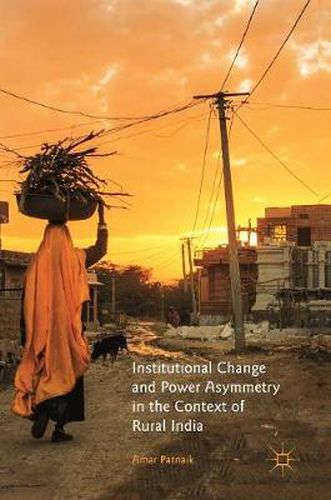Readings Newsletter
Become a Readings Member to make your shopping experience even easier.
Sign in or sign up for free!
You’re not far away from qualifying for FREE standard shipping within Australia
You’ve qualified for FREE standard shipping within Australia
The cart is loading…






This title is printed to order. This book may have been self-published. If so, we cannot guarantee the quality of the content. In the main most books will have gone through the editing process however some may not. We therefore suggest that you be aware of this before ordering this book. If in doubt check either the author or publisher’s details as we are unable to accept any returns unless they are faulty. Please contact us if you have any questions.
This book explains how to bring about institutional change and foster new institutional structures (institution building) by resolving power inequities in a rural ecosystem in India, and advocates the identification of an appropriate institutional champion to make this happen.
The book develops a power-asymmetry-based framework and argues that a champion with the right attributes and the ‘ability’ to ‘convene’ people over a social issue can only succeed if he/she can resolve or reduce the deep-rooted societal power asymmetries within that community. It also presents four case studies that indicate how such social change is typically spread over a long period of time.
$9.00 standard shipping within Australia
FREE standard shipping within Australia for orders over $100.00
Express & International shipping calculated at checkout
This title is printed to order. This book may have been self-published. If so, we cannot guarantee the quality of the content. In the main most books will have gone through the editing process however some may not. We therefore suggest that you be aware of this before ordering this book. If in doubt check either the author or publisher’s details as we are unable to accept any returns unless they are faulty. Please contact us if you have any questions.
This book explains how to bring about institutional change and foster new institutional structures (institution building) by resolving power inequities in a rural ecosystem in India, and advocates the identification of an appropriate institutional champion to make this happen.
The book develops a power-asymmetry-based framework and argues that a champion with the right attributes and the ‘ability’ to ‘convene’ people over a social issue can only succeed if he/she can resolve or reduce the deep-rooted societal power asymmetries within that community. It also presents four case studies that indicate how such social change is typically spread over a long period of time.